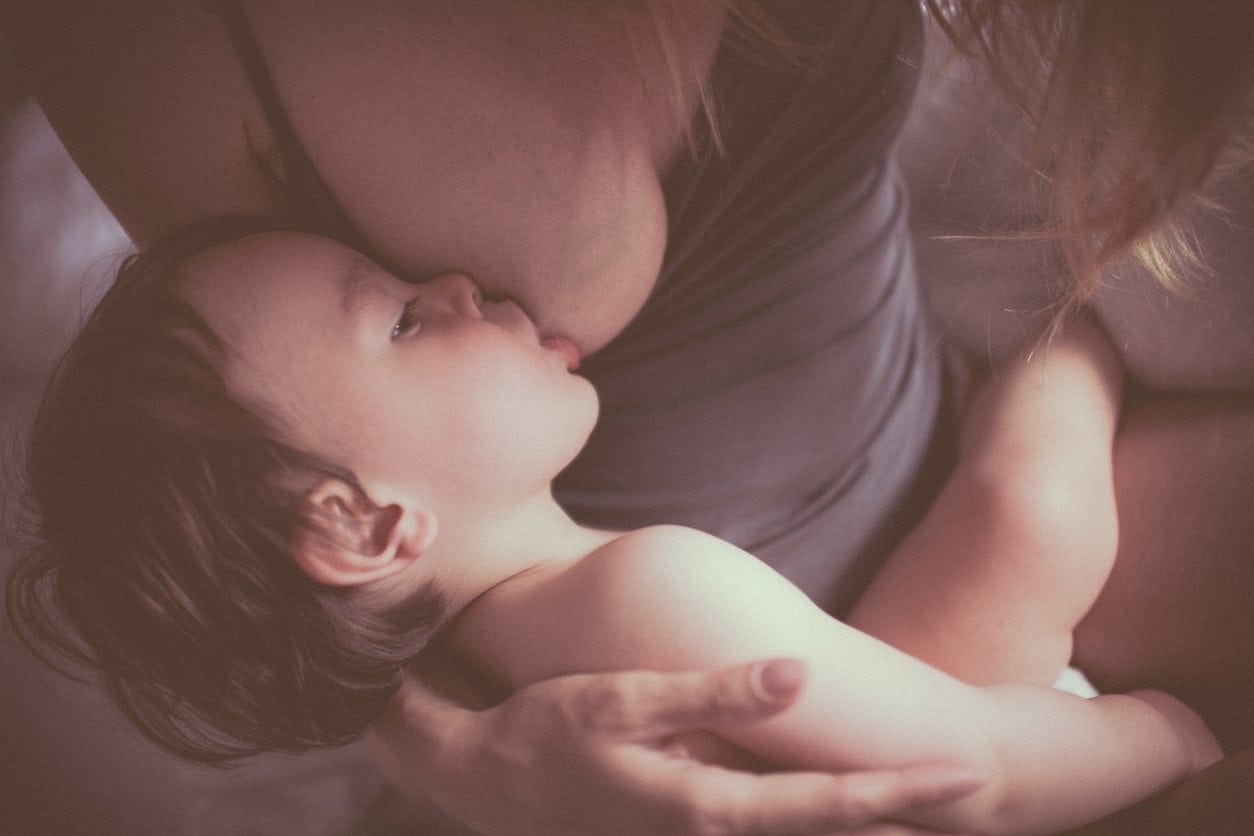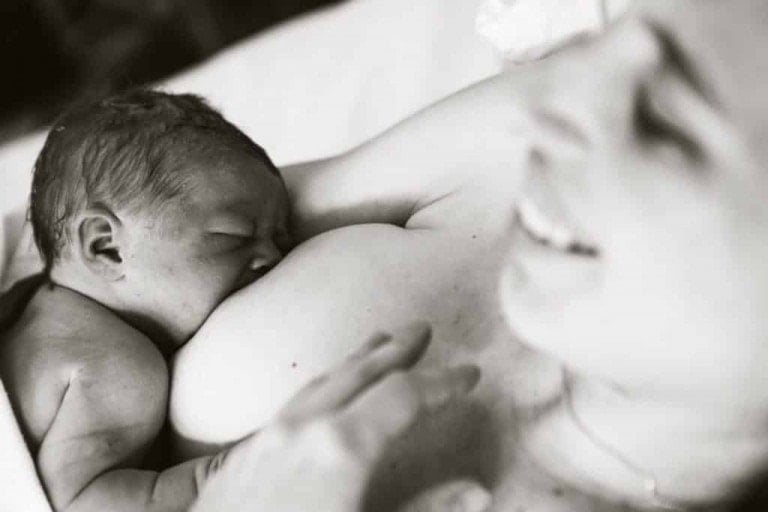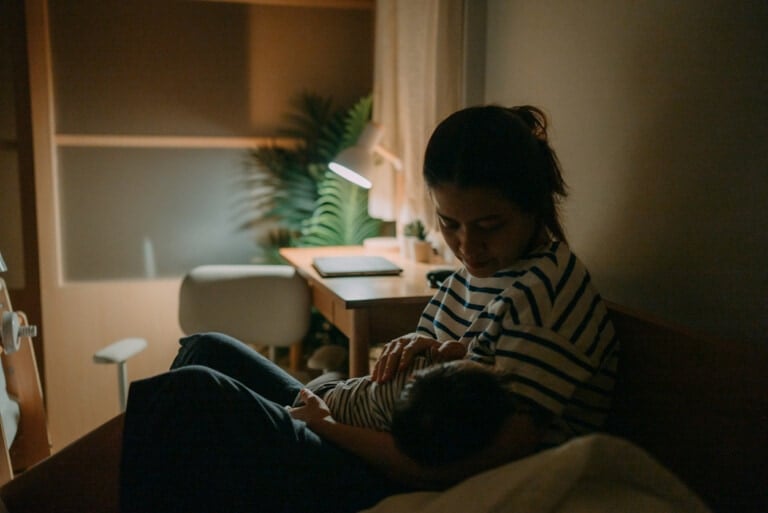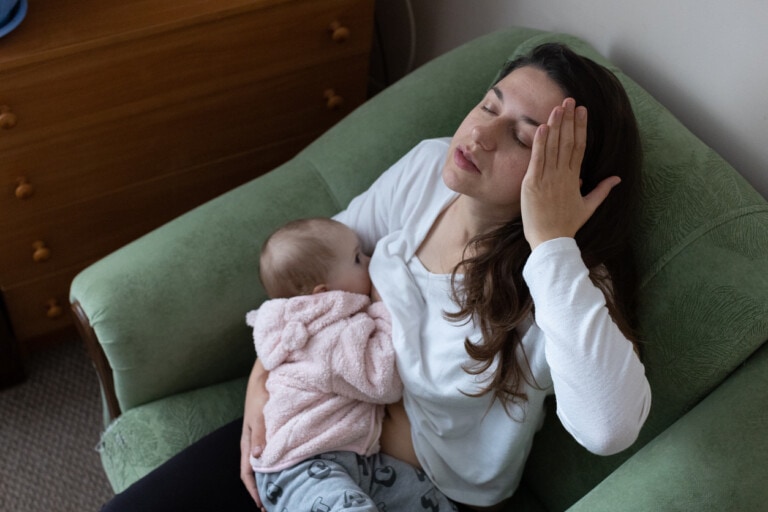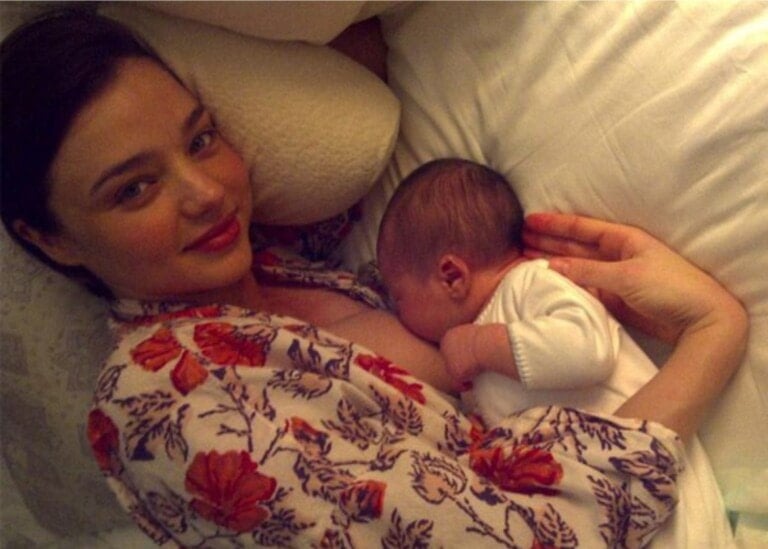I write about sleep deprivation a lot. Why is this? Because, as mothers, it is the one thing that drives us INSANE! We are exhausted and so tired we don’t even know what we are doing. We feel overwhelmed, overworked, and underpaid. One reason this is so overwhelming for us is we get frequently asked how our baby is sleeping. “Is your baby a GOOD baby?” Have you been asked this question before? Does it make you want to cry and laugh at the same time?! Because you know what they are asking you? What they REALLY want to know is . . . “Is your baby sleeping through the night yet?” So what is normal when it comes to night waking? Is your baby weird because they are still waking frequently to breastfeed?
Here are five things I have discovered in the past 14 years of working with breastfeeding mothers:
1. Your Baby Does Not Magically Stop Needing a Breastfeed During the Night Just Because They Reach the Age of Six Months
I see the same information and advice whenever I read a sleep article. Namely, “By this age, your baby does not need to wake up at night.” See what they did there? They tell you your baby doesn’t actually “need” you. They are just doing it because they have a sleep problem that you, as the parent, have created. The truth is your baby needs you during the night just as much at 6, 9, 18+ months as they do at 2 months. They are also not developmentally ready at this young age to understand what’s happening if you try to get them to sleep through the night without a breastfeed here or there. Your baby will continue to need you for a long time, and mothering through breastfeeding happens both during the day and at night.
2. Breastfed Babies and Toddlers Wake Anywhere From 1 to 1,457 Times per Night
Yes, I’m exaggerating with that range, but know that it is still quite normal if your baby wakes every 1-1 ½ hours overnight. Exhausting? Yes! But normal.*
When I researched for my book on gentle sleep, Boobin’ All Day . . . Boobin’ All Night, I found that from the 8,000 + people I polled, over 66% of toddlers over the age of 24 months were still waking 1-3 times at night to breastfeed. Over 12% were still waking 4-6 times! This gives you some good insight into just how normal this night-waking is. They do not have sleep problems. These are breastfed kids who are continuing to do what babies and young children have always done since . . . forever! They wake up at night to find some comfort through breastfeeding.
*There are, of course, exceptions to this. For instance, if a baby is waking due to discomfort from reflux, food intolerances, sleep apnea, etc. However, there will usually be other symptoms if this is going on. Please seek help from your IBCLC and doctor if you have concerns. Additionally, read the five most common reasons babies wake up.
3. You Will Not Create “Bad Habits” by Breastfeeding Your Baby to Sleep
Instead, your baby will learn what it means to be comforted and cuddled while having their needs met through breastfeeding and hugs. This creates confidence and independence. When they are developmentally ready, they will fall asleep with a cuddle rather than a breastfeed and eventually fall asleep independently. This is usually a gradual process that happens over time as they feel more comfortable with it.
From my experiences working with parents, this rarely happens naturally (without sleep training or parental encouragement) before 24 months. There are, however, ways to gently encourage this to happen once your baby is around 18 months old and can understand more of what you are saying.
4. Babies and Toddlers LOVE to Go On and Off the Boob in the Early Morning Hours Leading up to Sunrise
I often hear from parents that their child will be on and off the breast very frequently (cluster feeding) in the early morning hours before the sun comes up. Kids have amazing little body clocks and can sense when the sun will rise! Often, this will be when they are looking for some extra comfort to stay asleep and settled.
5. There Are Gentle Ways to Night-Wean Your Child That Do Not Involve “Cry-It-Out,” “Responsive Settling,” or Sleep Training Techniques
How is this possible? By waiting until your child is old enough to understand better what you are saying and has a level of communication themselves.
If you are looking to night-wean, I recommend waiting until your child is at least 18 months old. I suggest this age because your child will be ready to understand more of what you are saying. You will be able to explain what is happening (“No boobie until the sun comes up.”), and you will see that they get it. They might not like it! But they will understand.
Nighttime parenting in a gentle way is all about respecting where your child is developmentally while also thinking about yourself! Remember, breastfeeding is a relationship, and how you feel about the whole thing matters, too. While motherhood is exhausting, remember, it’s also hard for our little ones. I promise you, your child WILL eventually fall asleep on their own and sleep in their own bed. Believe me . . . my 14-year-old, who spent the first few years of his life breastfeeding and cuddled up next to me, would cringe at the thought of me cuddling him to sleep now! They do grow up. In the meantime? Cuddle them. You simply cannot spoil a baby by breastfeeding your child too often or cuddling them too much.













